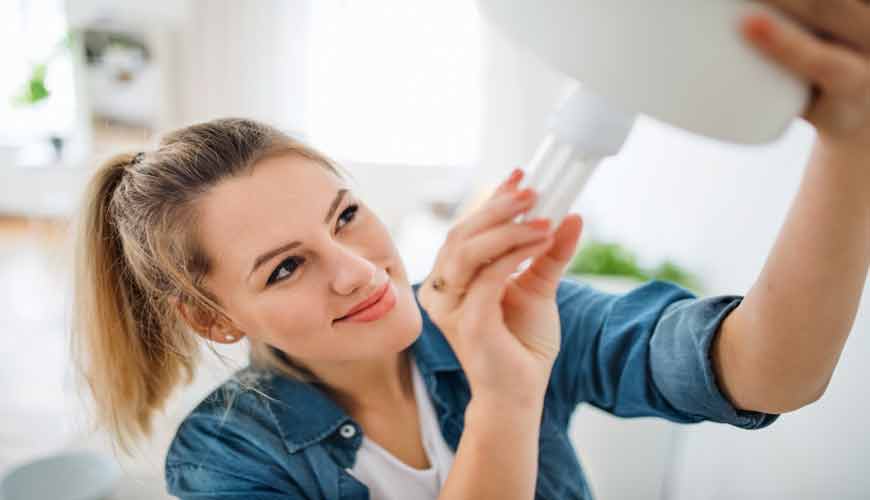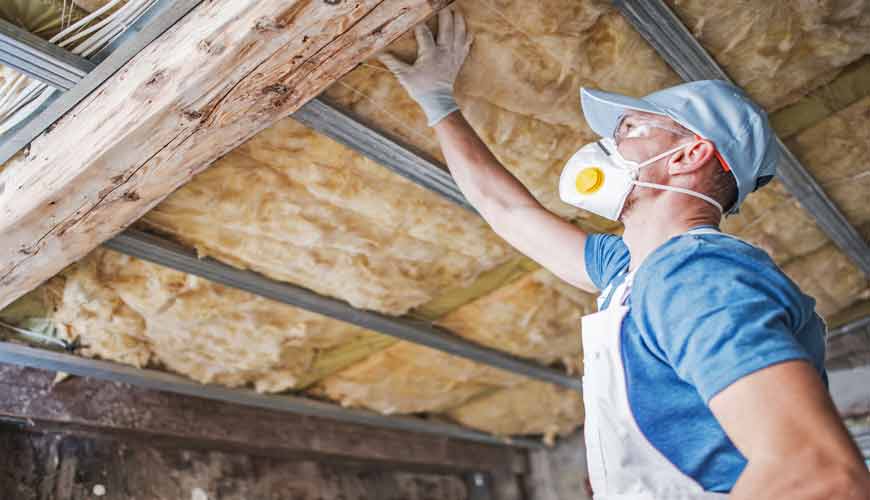Actions We Can Take
Heating our homes accounts for an estimated 61% of our household energy use, with heating water the next biggest contributor at 19%.
Our lighting and appliances account for 17% while 2% is taken up through cooking.
Looking at these different areas are good first steps to action.
Heating
Given that heating is your biggest energy user, making changes here can really help.
- If you have one, set the thermostat to a maximum of 20°C for your living rooms. Reducing your thermostat by 1°C could lower your total energy usage by an estimated 10%. Other areas of the house can be heated to a cooler temperature of between 15-18°C.
- A timer can help us to not leave the heating on too long and you can pre-set this for specific intervals during the day to lower unnecessary use. If you don't have a timer, radiators will continue to warm rooms after the heating has been turned off, so turn them off early.
- On colder days, air your house first thing in the morning before you turn on your heating, so that you don't lose the heat you create during the day through open windows and doors.
- In rooms you don’t need heated, use the valve on the side of radiators to turn them down or even off.
- In rooms you are heating, keep the doors closed to maintain the desired temperature.
- Don’t block your radiators with furniture or curtains as you’ll lose the heat you create and use more energy trying to get it back. Draught excluders can help to minimise heat being lost from doors and windows, however ensure your wall vents are never blocked to ensure good air quality.
- Have your heating system serviced once a year to ensure best efficiency, meaning it will be using the lowest amount of fuel to perform properly.
- Bleeding your radiators once a year can also ensure they are heating fully and using the least amount of energy.
Hot Water
As your next biggest home energy user, looking at how you heat water is a good action to take.
- Water should be heated to 65°C, and we can use a timer to suit our daily routine and prevent excess energy being wasted.
- If your water is heated by the central heating boiler, a thermostat on the cylinder will keep the water from overheating.
- Lagging jackets around your cylinder can help to lower your energy spend as the water will maintain a higher temperature for longer.
- Have your boiler serviced once a year for safety and better energy performance.
- Electric showers are really convenient, but as it involves heating water, they are big energy users: eliminating any extra time in the shower can help lower your bills. Baths also use a lot of energy to heat the required amount of water.
Lights
- LED bulbs can use up to 85% less energy than normal bulbs and light just as warmly.
- Turning off lights you don’t need will also save energy.

What’s Plugged In?
The following top tips will help you to save energy and money on appliances and devices.
- Standby mode on any of your devices and appliances still use energy, so turn them off at the wall when not in use.
- Use eco mode if you have them on any appliances, this will use less energy.
- Run the dishwasher and washing machine at lower temperatures where possible and only with a full load.
- Avoid the tumble dryer as it is a big energy user and dry clothes naturally. If drying inside, make sure you have good ventilation to avoid condensation.
- Your oven uses lots of power so use strategically (e.g. batch cooking if possible) and minimise opening the door to avoid extra energy being used to heat it back up.
- Kettles, toasters, irons and hair dryers are big energy users.
- Don't overfill the kettle, only boil as much water as you need.
- Keep the fridge door closed, every 10-20 seconds the door is open means approximately 45 minutes of energy use afterwards to cool it back down.
- Have appliances repaired instead of buying new ones (see repairmystuff.ie).
- If you do need to buy a new appliance, check carefully the energy information: A-rated appliances use the lowest amounts of energy. They may be more expensive upfront, but you will use far less energy over the years, saving you money on your bills and reducing the carbon intensity of the appliance. Buy only what you need for your space and needs, bigger will use more energy. Check out this energy labelling guide from the Sustainable Energy Authority of Ireland (SEAI) for more information.
- Limit your electricity use during peak hours (e.g. 7-9am, 4-7pm). This will help reduce the demand at power stations, helping to lower national fossil fuel usage and greenhouse gas emissions.
- Different electricity plans can have increased benefits for different customer needs, for example, if you charge an electric vehicle overnight, a day/night tariff can reduce your costs. Explore what is available on the market and talk to your provider to see if there is a better plan for you which will help reduce your energy spend.

